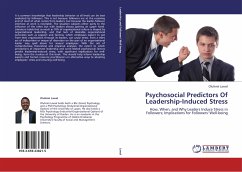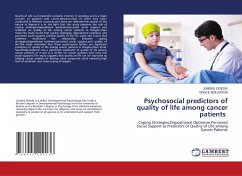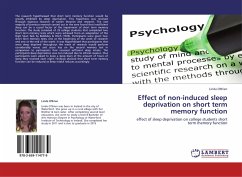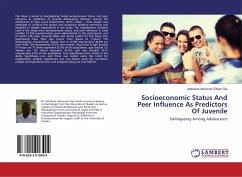
Psychosocial Predictors Of Leadership-Induced Stress
How, When, and Why Leaders Induce Stress in Followers; Implications for Followers' Well-being
Versandkostenfrei!
Versandfertig in 6-10 Tagen
45,99 €
inkl. MwSt.

PAYBACK Punkte
23 °P sammeln!
It is common knowledge that leadership behavior at all levels can be best evaluated by followers. This is not because followers are at the receiving end of most of what comes from leaders, but because the leader-follower interface at work is inevitable. The situation subjects either party to the influence of the other but with leaders always gaining an upper hand. Literature holds that as much as 70% of organizational culture is shaped by organizational leadership, and that lack of desirable organizational outcomes such as support and fairness, which employees expect to get from their organiza...
It is common knowledge that leadership behavior at all levels can be best evaluated by followers. This is not because followers are at the receiving end of most of what comes from leaders, but because the leader-follower interface at work is inevitable. The situation subjects either party to the influence of the other but with leaders always gaining an upper hand. Literature holds that as much as 70% of organizational culture is shaped by organizational leadership, and that lack of desirable organizational outcomes such as support and fairness, which employees expect to get from their organization through its leaders, can cause stress. Even a mere act of indiscretion or misuse of discretion on the part of an organizational leader may spell doom for several employees. With the aid of comprehensive theoretical and empirical analyses, the extent to which perceptions of important leadership and work-related psychosocial factors predict leadership-induced stress, with significant implications for well-being, form the nucleus of this book. This should help inform leadership experts and human resource practitioners on alternative ways to situating employees' stress and ensuring well-being












